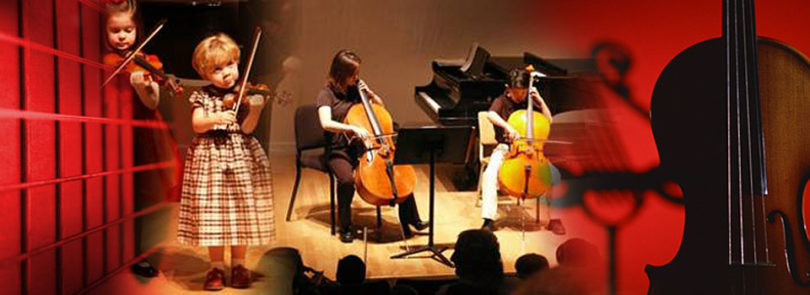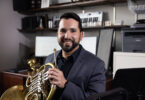“Playing a stringed instrument is like having this terrible jigsaw puzzle,” says Michael Heald, associate professor of violin. “To play it perfectly, you have to put in all the right pieces at the same time…that challenge is a lifelong challenge. It’s a learning of a different nature.
“Unfortunately,” he adds, “as interest in stringed instruments grows among students, there aren’t enough professionals to teach them.
“Nationally, we are about 20,000 string teachers short,” he says.
Enter the National String Project Consortium, a project started by the American String Teachers Association to increase the training of string teachers in universities. Six years ago, the University of Georgia became one of the first universities to participate in the program; Heald is the director of the UGA String Program.
The program was funded from ASTA grants for the first few years; now it is self-supported by tuition and donations.
Around 50 area school children – a few come from neighboring counties – meet twice a week to study violin, viola, cello and bass, instructed by UGA music education students. Class fees are lower than most private lessons, says Carolina Melchiori, a graduate student and the UGA String Project master teacher, which encourages a more economically diverse range of students. Meanwhile, UGA students get top-notch training that aids them in finding professional teaching jobs after graduation.
And every semester, the children have the added benefit of performing in a free concert that is open to the community, as they will on April 24 at 5 p.m. in Hugh Hodgson Hall.
The String Project’s teachers visit area schools each year to recruit, bringing stringed instruments for demonstrations. Many of the children have never played before, says Heald, but one of the goals of the project is to stimulate community interest.
“It’s encouraging a love of classical music for life,” says Heald. Not only that, but with the classroom visits and interaction with the involved families, “it’s a huge outreach opportunity for the university.”
Melchiori lauds the project’s teacher training.
The UGA String Project “helps me discover my teaching skills and my devotion to this activity,” she says. “It not only has given me an amazing experience in the teaching field and all that is involved in the classroom, but it has also made me learn how to behave, work and establish a relationship with large groups, and more specifically, with kids.”
“The potential is absolutely huge,” says Heald of the program. In one Gwinnett County high school alone, he says, there are over 400 string students.
“People think classical music is dead,” he says. “I say look at the schools – it’s not true.”







